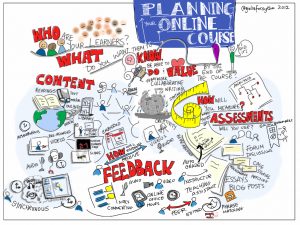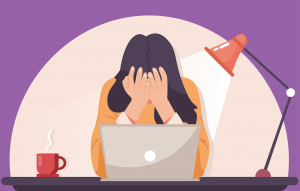It was the same day for many: adults were going to work, kids were off to school, people were looking forward to going home to relax and watch some NBA basketball. Just another normal day in March, or so everyone thought. Nobody knew that this would be the last “normal” day they would get to experience for a year and a half and counting. Soon enough, people began tuning into the news, seeing more stories of a strange new virus in China, but thinking nothing of it since it first showed up in December. Then the first known cases of it had made its way to the United States, and, just like that, before people could process what was going on, people were getting calls from work and school, the whole world started to go into a lockdown. The sounds of cars driving on streets and highways close by quieted. The school hallways were dark and empty, people began to work from home if possible. Panic and worry arose in every home, and just like that, a new “normal” had begun.
Pandemics are few and far between, but throughout history they have had great impacts on the lives of the people affected, and this virus now referred to as Covid or the Coronavirus is no different. Covid has had a big impact on the lives of everyone. Restaurants and businesses were forced to shut down publicly and move work on-line, big events were cancelled, and supply shortages began with toilet paper. One of those big transitions was moving school online, which, even now, certain school are still trying to transition back to in person and have begun to accommodate people who want to continue with these online classes. This period of time has often been referred to as Zoom University, which has made students, teachers, and parents all wonder: Just how much of an impact did this period have on the students academic success?

In a matter of weeks, students had already been transitioned to start online classes. They began to try and adjust to the new norm and ways of learning, from sitting in a video call with their teacher and fellow students, to just receiving assignments and information in an asynchronous matter, there was a plethora of different things to get used to. Throughout it all, many began to wonder: Is this really as bad as I thought it would be? Am I doing better or worse than I was when classes were in person?
This leads to the first question: was there a big difference in students’ grades from online classes in comparison to in person? OneClass surveyed over 14,000 college students about their fall 2020 experience. Students from 232 public and private universities responded. What they found was 85 percent of respondents said the pandemic had a negative effect on their performance, 9 percent said the pandemic didn’t affect their performance, and about 5 percent said the pandemic had a positive influence. 1 As school administration, students, parents, and even employers became curious, there were various research studies conducted and most came to the same conclusion: between in person and online class experiences, the latter resulted in students grades declining. When the pandemic began, the United States Military Academy at West Point professors of economics wondered the same thing, and so they decided to study the situation. Each professor had an online and an in-person portion of the class with relatively even amounts of students, and all of the course material was the same. At the end of the semester, it was found that those taking the online course had a standard deviation of -0.2 lower than that of their counterparts. 2 Why might this be? This caused by many different factors, but probably the most important reason for the difference is the lack of communication often felt in online classes. Due to the disconnect, students often asked less questions and went to professors for help less often.

As assignments continued to roll out, many students’ dashboards lit up with missing or incomplete icons, while some would wake up and see what was due for the day and be prepared to finish it by 12:00 am, not treating essays and regular homework any differently. Thanks to the end of typical campus activities there was so much time in their days. What was the point in worrying about an assignment that was due 4 days? Not being able to go out and do what they normally did, or anything at all for that matter, made many begin to feel as if they had all the time in the world to both work and also relax and watch Netflix all day long.
This “I”ll do it later” mentality, due to the difference in class format between online and in person-classes resulted in many students’ work ethics declining. This was in part due to having many classes in which assignments had a general long-term completion date, just needed to be done by the end of the semester. Students would get a certain amount of assignments for a week and it didn’t matter which order they were done in as long as it was turned in by Sunday. As has been found in the past, a study was done by Dan Arielle in which 3 groups of students were selected for a class and each one had a different due date for the same three essays. One group just had to get it done by the end of the semester, another was able to set their own due date, and the last group had theirs due in an evenly spaced time. To no surprise, the group who had the most students complete the essays was group 3, followed by group 2, and then group 1. It also said that in the case of group 2, those who evenly spaced out their due dates themselves got the assignment done on time. 3 This study helps to show just how important due dates are for goal setting, not only for students but people in general. Also, in general, 20% of adults are considered chronic procrastinators, but when entering college, that number skyrockets to 50%. 4

As many students sat around procrastinating with their assignments, watching tv, often times people would begin to check their phones. Most found only a few notifications or none at all. Sure, having a friend to FaceTime every so often was nice, and the occasional good snap conversations were fun, but being together with others in person has a huge impact on our relationships. Students and people in general slowly began to realize just how important in person interactions were to their overall happiness and health.
One of the biggest factors impacting students’ success is a students’ health, although people underestimate just how big of a role it plays in academics. With almost any situation in life, people do better whenever they are healthy mentally and physically. Some of the results of mental health struggles for students includes: inability to focus and complete challenging tasks, missed days of school due to illness or school avoidance, course credit deficiencies over time, and lower end-of-course grades.5 Although mental health challenges obviously cannot be avoided at times, if detected early, can lead to improved academic achievement and reduced disruptions at school. 6 The biggest obstacle the pandemic brought for many was not getting an adequate amount of social interactions with friends, teachers, and family members. While there were things such as FaceTime and other messaging apps to help, others still lacked the social relationship interactions they needed, and as a result, their mental health declined. For some people, who lived alone or did not have many friends, school and work were where they got this quality face to face interaction time.
Although online school has positive aspects, oftentimes with many situations, the good is overshadowed by the bad and prevents issues from being noticed and solved. With schools beginning to switch back to fully in-person classes, it will be important for teachers and parents alike to understand the struggles that developed with online school for many students and give them a chance to readjust before questioning why they might be struggling academically. It is important for those teachers and students continuing classes online, that they understand some of the critical difficulties online presents and to find solutions to make a great experience for both teacher and student. It will also be important for students to figure out the best way to transition back to in person classes and to get back on track with their academics.
One of the most crucial things to maintain good grades is discipline. If you are finding yourself struggling to meet deadlines, find a schedule that works for you and gives you time for the important things in your life, and find spots of time that you can designate focus for studying, work, or anything that you need to get done. It’s also just as important for students to get used to making conversation and friends once again, especially for those who might be at a new school than at the start of the pandemic. Making friends is probably a skill that many of us took for granted. A good place to start if you’re a college student is to make friends with your roommate, suite-mate, resident assistant or classmates. Find subjects that are common ground to talk about. You may have to be the one to initiate the conversation. Once you meet a few people, and participate in activities together you’ll be able to start meeting more people through those people and will find people that are easy to talk to. It can be helpful to look for and join campus organizations that interest you. Remember, you’re not alone in feeling out of communication practice. Most importantly, don’t stress over this, nothing forced is ever good, so just relax and enjoy the ride as you transition back to school and life.
- Amour, Madeline St. “Survey: Pandemic Negatively Affected Grades This Fall.” 1150 Conneticut Avenue NW Suite 400, Washington DC, 5 Jan. 2021. ↵
- Cellini, Stephanie Riengg. “How Does Virtual Learning Impact Students in Higher Education?” Brookings.edu, Brown Center Chalkboard, 13 Aug. 2021, https://www.brookings.edu/blog/brown-center-chalkboard/2021/08/13/how-does-virtual-learning-impact-students-in-higher-education/. ↵
- “Improve Your Productivity With the Power of Deadlines.” Art of Manliness, created by Brett McKay, Spotify, 2 Aug. 2021. ↵
- “Improve Your Productivity With the Power of Deadlines.” Art of Manliness, created by Brett McKay, Spotify, 2 Aug. 2021. ↵
- NITT-TA. “Mental Health and Academic Achievement.” Education.nh.gov, SAMHSA, https://www.education.nh.gov/sites/g/files/ehbemt326/files/inline-documents/mental_health_and_academic_achievement.pdf. ↵
- NITT-TA. “Mental Health and Academic Achievement.” Education.nh.gov, SAMHSA, https://www.education.nh.gov/sites/g/files/ehbemt326/files/inline-documents/mental_health_and_academic_achievement.pdf. ↵




31 comments
Yanelle Nicholson
I very much enjoy your article, it really makes one relive such a tumultuous time in our lives. I see all the points being made, and although I can’t argue with the statistics, I feel as though some of these studies are very generalized. For example, in the study where there were 3 groups and some of the students had no due date, some made their own, and some had a set due date. The study showed that the group that had the most success was the one with a set due date, but this isn’t the case for everyone. Although some do very well with due dates, others may not. Everyone is different, everyone has their own ways of learning, and saying that everyone or at least most will succeed with a set due date just isn’t completely accurate, and I feel as though it can be detrimental to those who can’t cope with that type of pressure.
Erik Dillard
I very much enjoyed your article! I feel that it accurately described and shared the same heaviness of the situation that all of us students felt during the entirety of this worldwide pandemic. We all, including the teachers and parents, in a matter of just a few weeks, adjust to a new education system. Before everything hit, very few of us even knew about zoom at all, so I think the name “Zoom University” is a great way to sum up the past few years. Great writing overall!
Jacob Galan
It is crazy that this happened 2 years ago and for me when this online education start, I still maintain a schedule to turn in my assignments. Though I procrastinate every now and then I still find the time to sit down and finish my assignment on time. If I was asked, would you rather have online school or in person school, I would choose in person because even though I’m an introvert, I do more work when I’m at school rather than when I’m at home and there are lots of distraction for me to not do my work.
Phylisha Liscano
This was a very interesting and informative article. The article was well written and i enjoyed getting the chance to read your article. The first paragraph was a great attention grabber. I can tell lots of research was put into your article and you provided lots of information. This topic was a very interesting one and you did a great job telling a story. Overall great article and an excellent topic.
Maria Luevano
This was a great article that can be relatable to practically everyone. The transition was hard from in-person to zoom, but I want to say that my experience was very different and I enjoyed online school through zoom. However, after that first year, it was getting boring and needed social interaction. Being at St. Marys and being taught by their professors has always been fun and enjoyable on zoom and in-person.
Erika Longoria
Great article! The start of the article immediately grabbed my attention and had me wanting to read more. Experiencing the switch from in person to zoom classes was hard. It is not even surprising to see that in the outcome of the survey 85 percent of students reported that the pandemic had a negative impact on their school performance. Not only did the pandemic affect students, it had an effect on every single person throughout the world.
Andrea Ramirez
Very good article,
The way of narrating it made it an attractive and easy to understand article. The era of Zoom is a change that we have faced. In my opinion, online classes are not the same as in-person classes, you cannot interact in the same way and doubts cannot be resolved in the same way. That is why in the survey you mentioned, 85 percent of the students said that the pandemic had a negative effect on their performance, and only 5 percent said the pandemic had a positive influence. Likewise, it was the same conclusion in the other studies you included. In fact, I have several friends who told me exactly the same thing, and some even told me that they just couldn’t learn.
Finally, I really like the advices that you include at the end of your article.
great job!!
Sara Davila
I especially commend this author on the introduction to this article. It drew my attention and was very relatable. If only I knew that the Friday before spring break would be the last time I stepped foot in high school. Everything that occurred in 2020 still feels so recent, even thought it is going on two years ago. Just to continue living the same lifestyle established in 2020.
Eliza Merrion
I found your intro paragraph to be very well written, it gripped my attention and really set the stage for the rest of your article. Being a student and experiencing this era of zoom and social media, I found your article very relatable. I highly agree with the statement you wrote, “Although online school has positive aspects, oftentimes with many situations, the good is overshadowed by the bad…” It is very easy during these times to constantly look at the ways zoom and the pandemic has impacted our education and lives in a negative way.
Carlos Hinojosa
A great hook and instantly got my attention. I remember that day to it was my senior year and we had learned during lunch that school was going to be out for a week or two. Since we were seniors, they didn’t really tell us any work would be made up. I also remembered that me and my friends were making plans the next time we met up. We didn’t see each other again until graduation. Honestly the first time I encountered zoom teaching was at St. Mary’s since they didn’t really teach us anymore since we were seniors, heck we didn’t even have a final. Very well-made article.